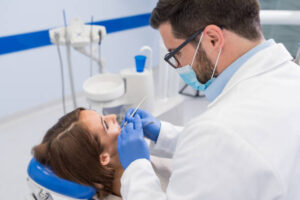Are you considering dental implants to replace missing teeth? Dental implants can restore not just your smile but also your ability to chew and speak with confidence. However, before you have this procedure, it is essential to check if your gums are healthy enough to support implants. This article will explore how to assess the strength of your gums and the factors that determine if you are a good candidate for dental implants.
Understanding Dental Implants
Dental implants are artificial tooth roots made of titanium, surgically placed into your jawbone. These implants provide a sturdy base for replacement teeth, such as crowns or dentures. They function like natural teeth, offering stability and durability.
Everything You Need to Know About Dental Implants
Importance of Healthy Gums
Healthy gums are crucial for the success of dental implant procedures. Your gums play a vital role in supporting the implant and ensuring its long-term stability. Weak or unhealthy gums can lead to complications during and after the implantation, increasing the risk of implant failure.
Assessing Gum Health
So, how can you determine if your gums are strong enough for implants? Here are key factors to consider:
1. Bone Density
The density of your jawbone is closely linked to the strength of your gums. Adequate bone density is necessary to support the implant and prevent complications. Your dentist may conduct imaging tests, such as X-rays or CT scans, to assess the condition of your jawbone.
2. Gum Disease
Gum disease, also called periodontal disease, can weaken your gums and harm the success of dental implants. Symptoms of gum disease include swollen or bleeding gums, bad breath, and a receding gumline. If you have signs of gum disease, seek treatment before considering implants.
Transforming Smiles with Dental Implants in Manchester
3. Gum Recession
Gums can recede and expose your teeth’ roots, harming dental implants’ stability. Your dentist will check how much the gums have receded and decide if more steps, like gum grafting, are needed to improve gum coverage and support for the implants.
4. Consultation with a Dentist
The best way to assess your candidacy for dental implants is to consult your dentist. During this appointment, your dentist will thoroughly check your gums and jawbone and discuss your treatment options. The plan may include procedures to address gum disease, bone grafting to increase bone density, or gum grafting to improve gum coverage.
Maintaining Gum Health
Regardless of whether you are considering dental implants, maintaining good gum health is essential. Here are some tips to keep your gums strong and healthy:
1. Brush and Floss Regularly
Practice good oral hygiene by brushing your teeth twice a day and flossing daily. This removes plaque and prevents gum disease. Use a soft-bristle brush and fluoride toothpaste.
2. Attend Regular Dental Check-ups
Schedule routine dental check-ups and cleanings to detect gum disease early and receive prompt treatment.
Can You Have Dental Implants with Gum Disease in the UK?
3. Avoid Smoking
Smoking can weaken your immune system and raise your risk of gum disease and other oral health problems. If you smoke, consider quitting to protect your gums and overall health.
Causes of Gum Recession
Several factors can cause gums to recede. Let’s take a look at them:
1. Gum Disease
The major cause of gum recession is periodontal disease. Plaque, a sticky film of bacteria, constantly forms on teeth. If not removed, it produces toxins that irritate and inflame the gums. An inflammatory process destroys the gum tissue, creating pockets where bacteria get trapped, compounding the problem.
2. Poor Oral Hygiene and Smoking
Both are known to cause gum disease and receding gums. Maintaining good oral hygiene and avoiding smoking can significantly improve gum health.
3. Other Causes
Hormonal changes, genetic factors, grinding and clenching teeth, crooked teeth, or a misaligned bite can also cause gums to recede. Aggressive tooth brushing and lip or tongue piercings can rub against the gums, causing them to wear away.
How to Relieve Pain from Dental Implants?
Treating Gum Recession
Before treating gum recession, the underlying cause needs to be addressed. Here are common treatments:
1. Treating Gum Disease
Treatment aims to thoroughly clean the plaque from above and below the gum line. Non-surgical methods include scaling and root planing, and in some cases, antibiotics. In more advanced cases, pocket reduction surgery may be required.
2. Addressing Teeth Grinding
A mouthguard is usually the treatment of choice for bruxism (grinding your teeth).
3. Correcting Misaligned Teeth
There are many ways to straighten crooked teeth. Treatments like Invisalign can help resolve gum disease caused by misaligned teeth.
4. Treating the Gum Recession
After addressing the underlying cause, several treatments can deal with gum recession. A crown or gingival mask can hide receding gums, but a gum graft is often preferred. In a gum graft, tissue from a healthy gum or the roof of your mouth covers the receding gum, reinforcing it and protecting it from further recession.
Conclusion
Ensuring your gums are strong enough for dental implants requires a comprehensive assessment by your dentist. Factors such as bone density, gum disease, and recession play a vital role in determining candidacy for implants. By prioritising gum health and seeking timely dental care, you can enhance your chances of a successful implant procedure. Schedule a consultation with your dentist today for personalised guidance and expert care.
Take the First Step Towards a Healthier Smile
Ready to explore your dental implant options? Schedule a consultation with Moston Dental Practice today. Our experienced team will assess your gum health and provide personalised guidance to ensure your journey to dental implants is successful. Your dream smile is just a call away with Moston Dental Practice, where your oral health is our top priority.
Frequently Asked Questions
How long does it take to recover from dental implant surgery?
Recovery time varies, but most patients resume normal activities within a few days. Full healing usually takes a few months, during which your gums and jawbone integrate with the implant for stability.
What happens if my gums start to recede after getting implants?
If your gums recede after implantation, it’s crucial to consult your dentist. They may suggest treatments like gum grafting to reinforce and protect the gums, ensuring the long-term success of your implants.
Are dental implants painful?
Most patients experience minimal discomfort during and after the procedure. Your dentist will use anaesthesia to keep you comfortable and may prescribe pain relief medication for any post-surgery discomfort.
How can I maintain my gum health after getting implants?
Maintain good oral hygiene by brushing twice daily, flossing, and attending regular dental check-ups. Avoid smoking and follow your dentist’s advice to keep your gums healthy and support the longevity of your implants.
Can older adults get dental implants?
Yes, age alone doesn’t prevent dental implants. The key factors are the health of your gums and jawbone. A thorough evaluation by your dentist will determine if you are a suitable candidate for implants.




